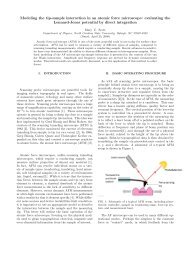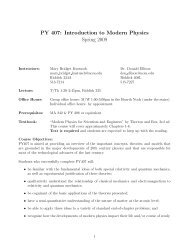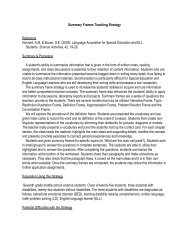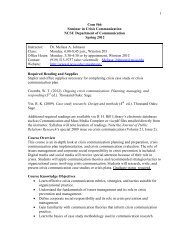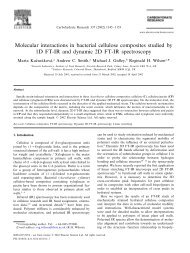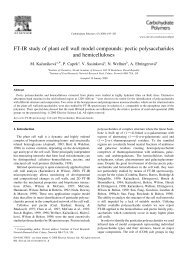Gorilla Warfare
Gorilla Warfare
Gorilla Warfare
Create successful ePaper yourself
Turn your PDF publications into a flip-book with our unique Google optimized e-Paper software.
..nternational<br />
BY SHARON BEGLEY<br />
N THE LUSH PLAINS OF CONGO'S VIRUNGA NATIONAL PARK LAST WEEK,<br />
the convoy ofporters rounded the final hill and trooped into camp.<br />
Theygently set down the wooden frame they had carried for miles,<br />
and with itthe very symbol oftheMricanjungle: a 600-pound silverback<br />
mountain gorilla. A leader ofa troop often visited by<br />
tourists, his arms and legs were lashed to the wood, his head hanging low and<br />
spots ofblood speckling his fur. The barefoot porters, shirts torn and pants<br />
caked with dustfrom their trek, lay him beside three smaller gorillas, all females,<br />
who had also been killed, then silently formed a semicircle around the<br />
bodies. As the stench ofdeath wafted across the camp in the waning afternoon<br />
light, a parkwarden stepped forward. "What man would do this?" he thundered.<br />
He answered himself: "Not even a beastwould do this:'<br />
Park rangers don't know who killed the four mountain gorillas<br />
found shot to death in Virunga, but it was the seventh killing of<br />
the critically endangered primates in two months. Authorities<br />
doubt the killers are poachers, since the gorillas' bodies were left<br />
behind and an infant-who could bring thousands ofdollars from<br />
a collector-was found clinging to its dead mother in one ofthe<br />
earlier murders. The brutality and senselessness ofthe crime had<br />
conservation experts concerned that the most dangerous animal<br />
in the world had found yet another excuse to slaughter the creatures<br />
with whom we share the planet. "This area mustbe immediately<br />
secured:' said Deo Kujirakwinja of the Wildlife Conservation<br />
Society's Congo Program, "or we stand to lose an entire<br />
population ofthese endangered animals."<br />
Back when the Amazon was aflame and the forests ofSoutheast<br />
Asia were being systematically clear-cut, biologists were<br />
clear about what posed the greatest threat to the world's wildlife,<br />
and it wasn't men with guns. For decades, the chief threat was<br />
habitat destruction. Whether it was from impoverished locals<br />
burning a forest to raise cattle or a multinational denuding a<br />
tree-covered Malaysian hillside, wildlife was dying because<br />
species were being driven from their homes. Yes, poachers<br />
killed tigers and other trophy animals-as they had since<br />
before Theodore Roosevelt-and subsistence hunters<br />
took monkeys for bushmeat to put on their tables, butthey<br />
were not a primary danger.<br />
That has changed. "Hunting, especially in Central and West<br />
Africa, is much more serious than we imagined:' says Russell Mitte~eier,<br />
president of Conservation International. "It's huge:'<br />
with the result that hunting now constitutes the pre-eminent<br />
threat to some species. That threat has been escalating over the<br />
past decade largely because the opening offorests to logging and<br />
mining means that roads connect once impenetrable places to<br />
towns. "It's easier to get to where the wildlife is and then to have<br />
access to markets:' says conservation biologist Elizabeth Bennett<br />
ofthe Wll.dlife Conservation Society. Economic forces are also at<br />
play. Thanks to globalization, meat, fur, skins and other animal<br />
parts "are sold on an increasingly massive scale across the world:'<br />
she says. Smoked monkey carcasses travel from Ghana to New<br />
York and London, while gourmets in Hanoi and Guangzhou feast<br />
on turtles and pangolins (scaly anteaters) from Indonesia. There<br />
is a thriving market for bushmeat among immigrants in Paris,<br />
New York, Montreal, Chicago and other points in the African di-<br />
22 NEWSWEEK AUGUST 6, 2007



